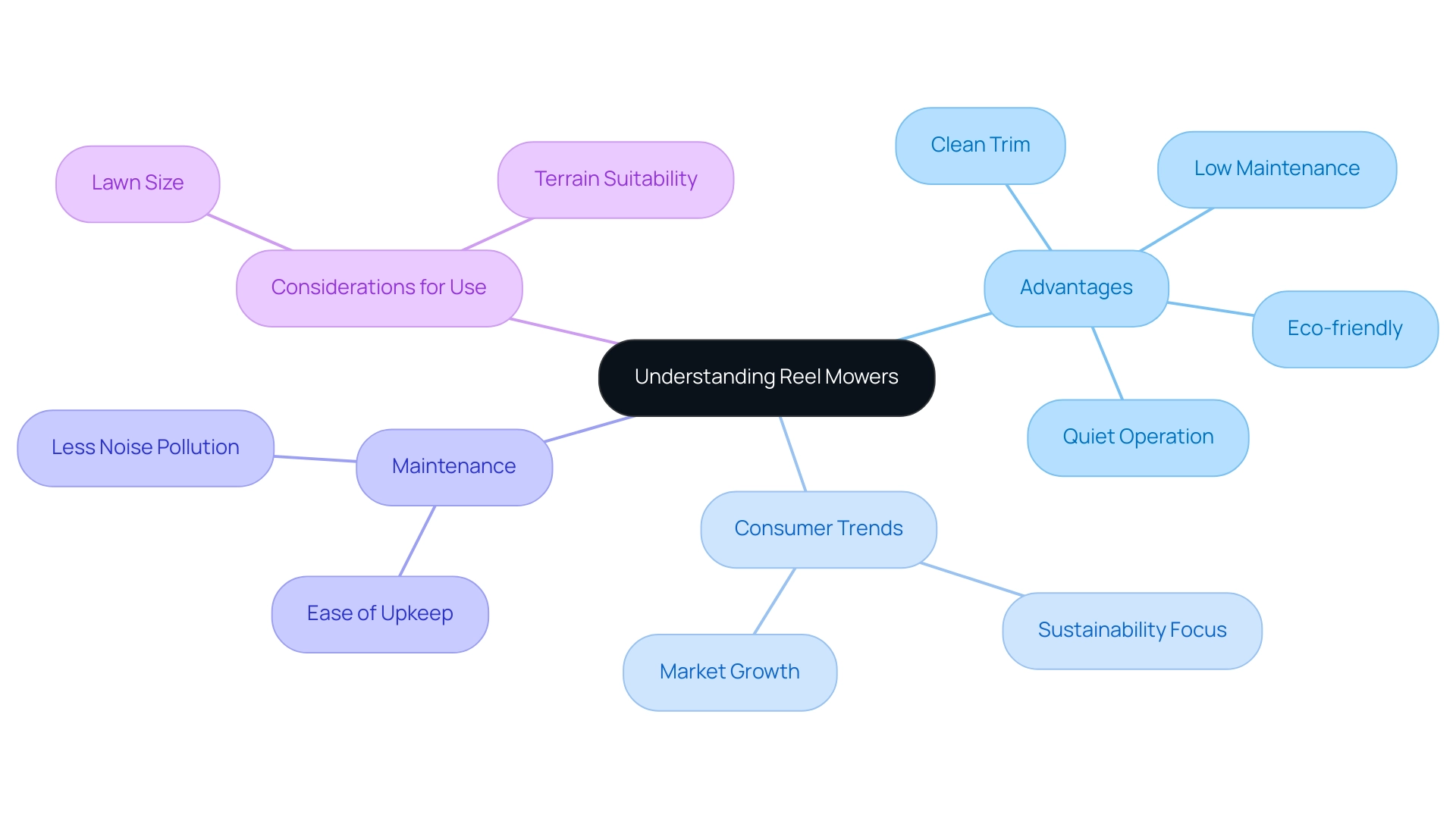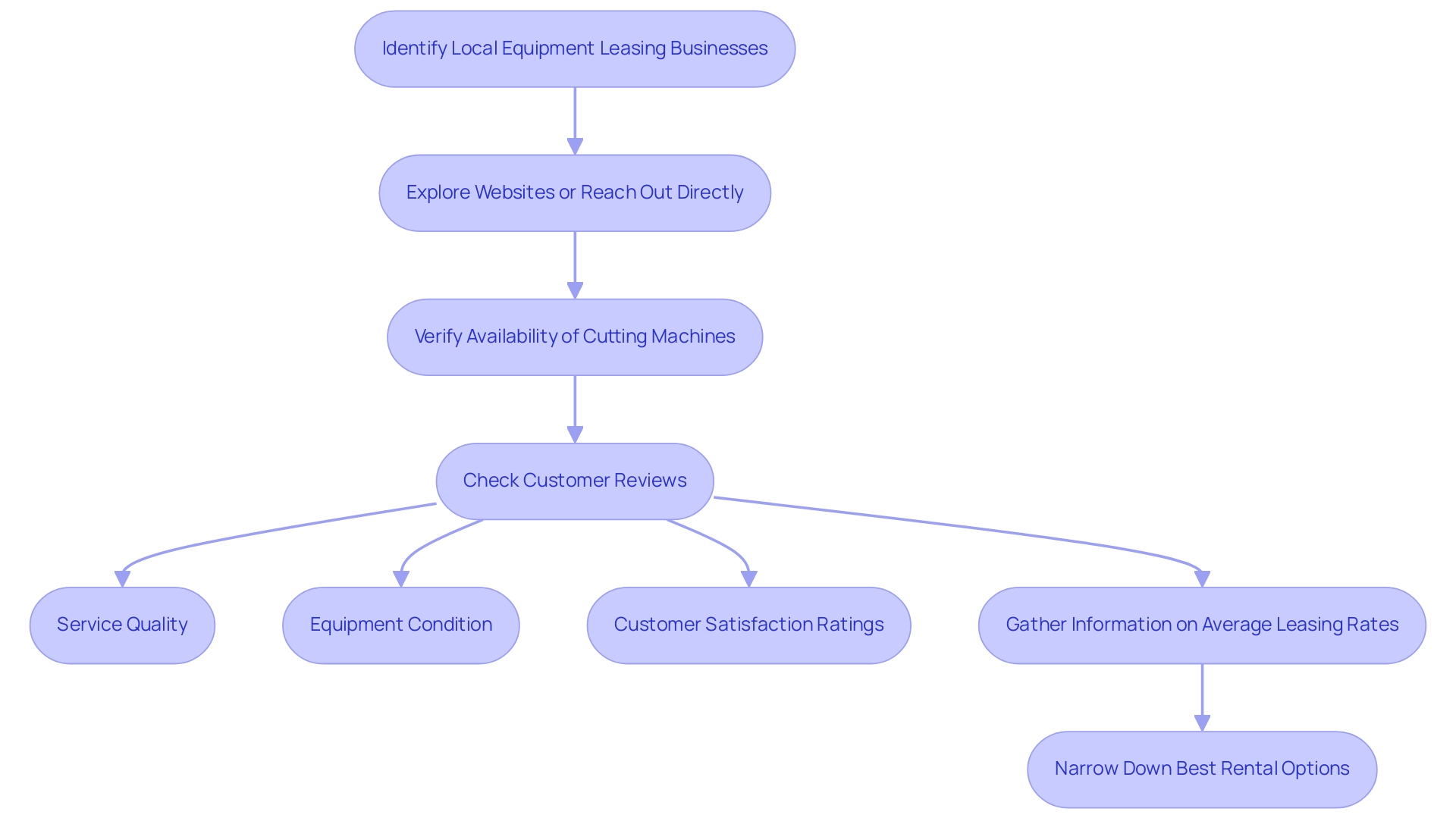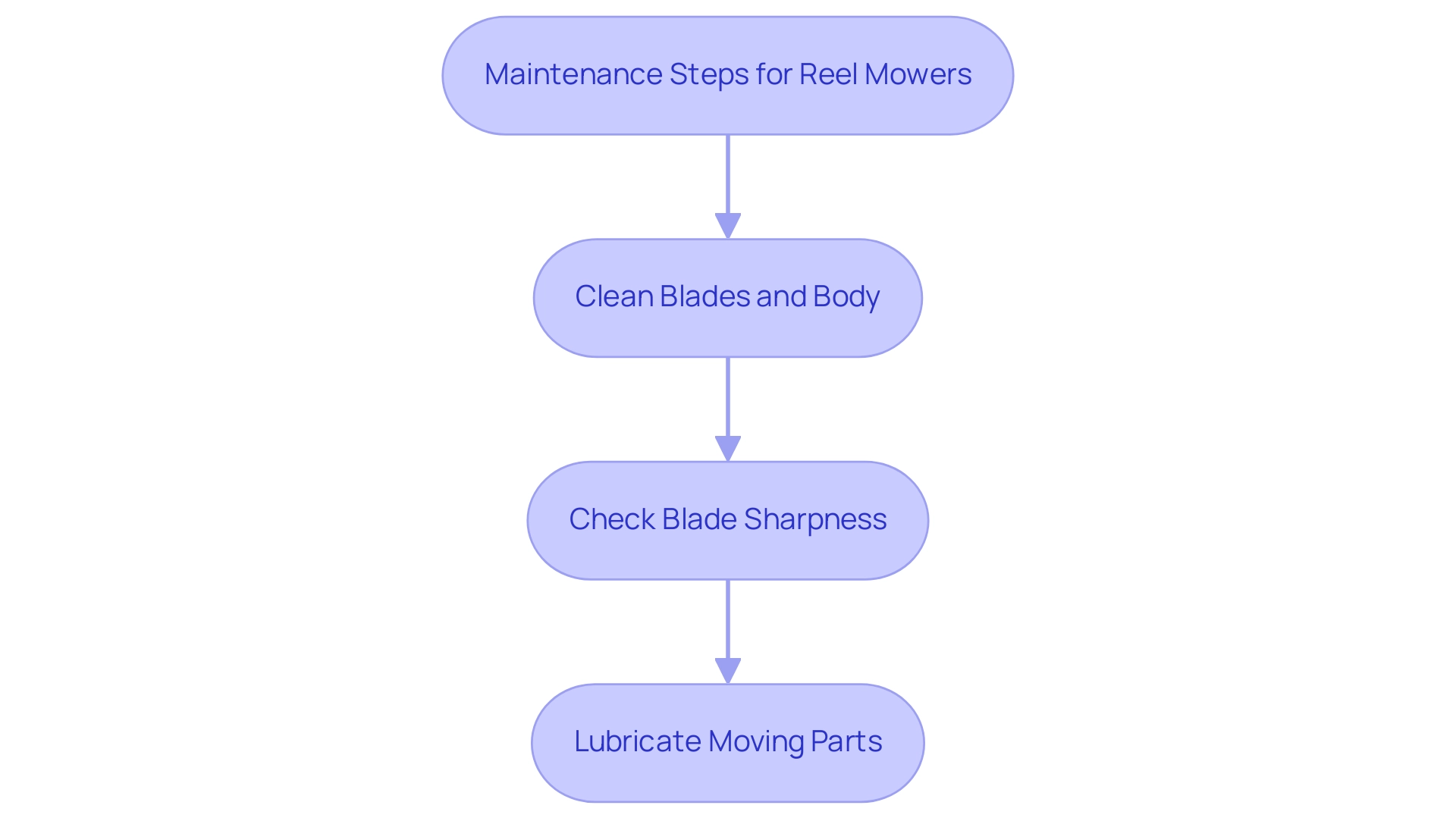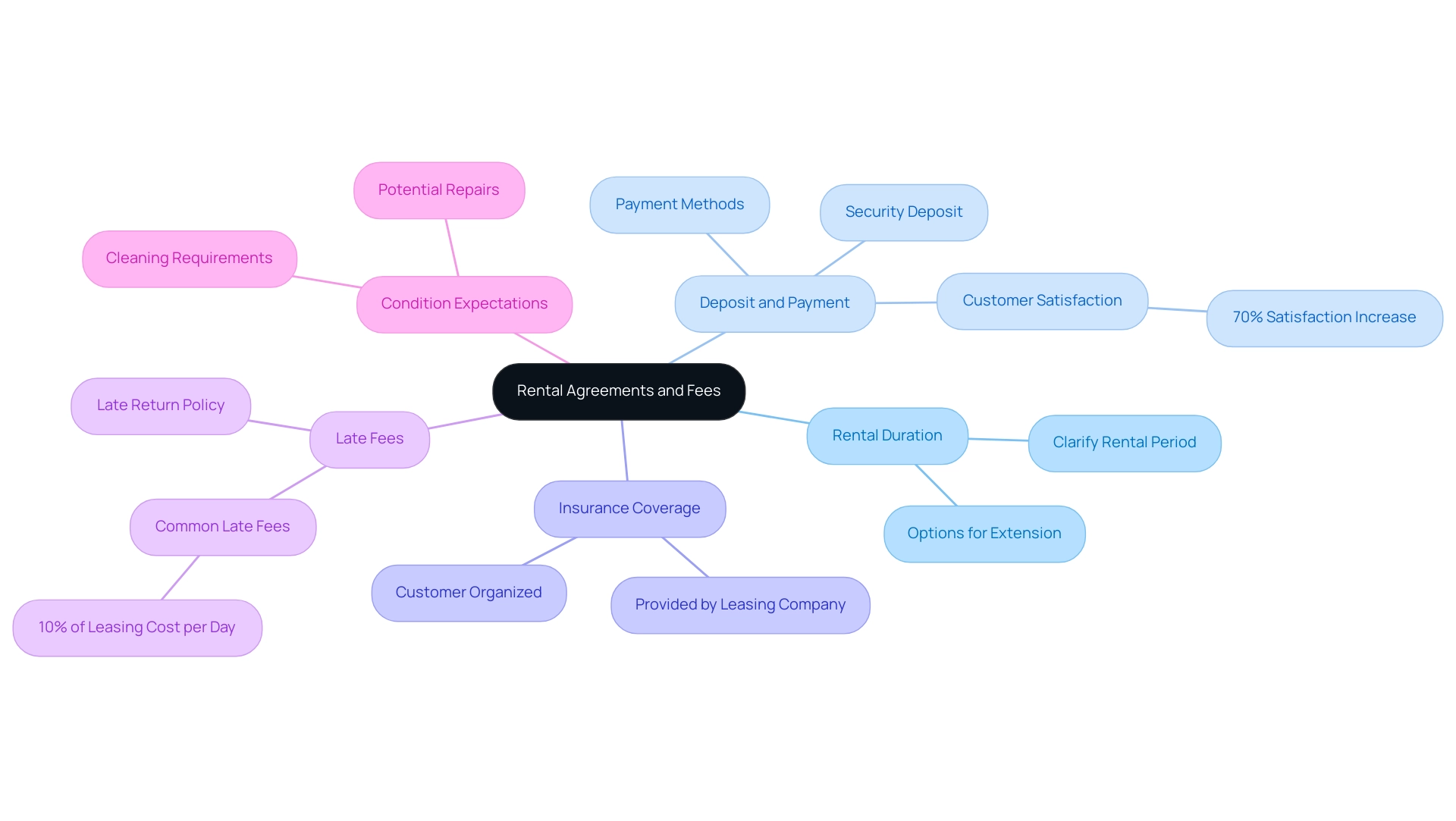Introduction
In the quest for a pristine lawn, homeowners often grapple with the decision of which mower to choose. While traditional rotary mowers dominate the market, reel mowers are emerging as a compelling alternative, offering a range of benefits that cater to eco-conscious consumers and those seeking a healthier lawn. With their quiet operation, low maintenance needs, and ability to deliver a precise cut, reel mowers present an attractive option for smaller, flat yards.
However, the journey to selecting and utilizing a reel mower effectively involves understanding rental processes, maintenance tips, and the nuances of rental agreements. This guide not only sheds light on the advantages of reel mowers but also equips homeowners with the knowledge to navigate the rental landscape and maintain their equipment for optimal performance.
Understanding Reel Mowers: A Homeowner's Guide
Grass cutting machines, recognized for their precise cutting blades fixed on a cylinder, provide many advantages compared to conventional rotary machines. For example, while rotary machines may be more powerful for larger yards, manual cutters provide a clean trim that encourages healthier grass growth, making them a preferred option for maintaining residential green spaces. Their eco-friendly nature—requiring no fuel or electricity—positions them as a sustainable choice in garden care, especially as consumer focus on sustainability increases, evidenced by the outdoor equipment revenue projected to reach $10.1 billion this year.
Furthermore, manual cutting devices are considerably quieter and simpler to upkeep than gas-powered options, lessening both noise pollution and the inconvenience of continuous maintenance. Industry specialists have observed that the home and garden sector experienced an 83% rise in referrals as individuals emphasized their living areas during the pandemic, further increasing interest in effective and eco-friendly yard care solutions.
When considering the rental of a reel cutting tool, it's essential to assess the size and terrain of your lawn. These cutting machines are most effective for smaller, flat yards. In contrast, rotary machines may be necessary for larger or uneven terrains. A case study on the grass cutting equipment market emphasizes the significance of product reliability and consumer education in addressing market obstacles such as price sensitivity and weather dependence. By understanding these factors and comparing the benefits of cylinder cutting tools against rotary alternatives, you can determine if a cylinder model aligns with your lawn care needs and contributes to a well-maintained, healthy lawn.

Step-by-Step Process for Renting a Reel Mower
To begin your search for equipment leasing businesses that provide cutting machines, first identify local options by exploring their websites or reaching out to them directly to verify the availability of cutting machines for hire. Pay attention to customer reviews, as they provide essential insights into the reliability of these companies. Look specifically for feedback on:
- Service quality
- Equipment condition
- Overall customer satisfaction ratings
Additionally, it's beneficial to gather information on average leasing rates for reel mowers in 2024 to ensure you are getting a fair deal. Keep in mind that reputable leasing companies often highlight features such as:
- A manual fuel shut-off valve
- Easy installation of the side discharge assembly
This initial research will help you narrow down the best rental options, paving the way for a smooth and efficient rental process.

Maintenance Tips for Reel Mowers After Rental
To maintain your reel cutting device in optimal condition, it is essential to clean it after each use. Begin by cleaning the blades and the body of the machine to eliminate any grass clippings and dirt. This simple step helps prevent rust and ensures the equipment remains in good working order. Additionally, turf care professionals recommend regularly checking the blade sharpness and lubricating moving parts to maintain optimal performance.
Joe Dunn, a supporter of manual grass cutters, shares, >I purchased a push cutter and as advertised it is easy to maneuver, quiet, and makes cutting grass a pleasant experience.<
Regular cleaning not only sustains the cutter's performance but also aids in its durability. By implementing these maintenance practices, you can prolong the lifespan of your lawn cutting device and enjoy a well-maintained yard.

Understanding Rental Agreements and Fees
When borrowing a reel mower, it's crucial to thoroughly review the agreement to ensure a smooth and hassle-free experience. Here are the key points to consider:
-
Rental Duration: Clarify the rental period and understand your options for extending the rental if needed. This helps in planning the project's timeline effectively.
-
Deposit and Payment: Be aware of any required security deposit and the accepted payment methods. According to industry expert Nathan Crossley, 'In the leasing sector, security deposits play a vital role.' Some leasing companies now authorize the full amount upfront, which can be beneficial for those with sufficient inventory, as it minimizes the need for security deposits and provides flexibility for customers. Notably, a recent survey indicated that 70% of leasing companies report an increase in customer satisfaction when adopting this policy.
-
Insurance Coverage: Ascertain if the leasing company provides insurance protection for the equipment or if you must organize your own. This can protect you from unexpected costs due to damages.
-
Late Fees: Familiarize yourself with the late return policy and any associated fees. Understanding common late fees can help avoid unexpected charges. Companies often charge late fees to ensure timely returns, which is crucial for maintaining project schedules. For example, many companies charge a late fee of 10% of the leasing cost per day, potentially accumulating rapidly if not monitored.
-
Condition Expectations: Know the expectations regarding the mower's condition upon return. This includes cleaning and any potential repairs. Ensuring the equipment is returned in good condition can prevent additional charges.
A case study on leasing agreements for lawn equipment highlights that authorizing the full payment amount upfront can minimize refund fees and provide flexibility for customers, as cancellations do not incur additional costs. This trend is becoming more prevalent among leasing companies, reflecting a shift towards more customer-friendly policies.
Remaining aware of the newest trends in leasing charges and regulations, such as those for commercial equipment, can also offer a competitive advantage in managing project expenses effectively. Recent data shows that rental fees for high weed mowers have risen by 15% over the past year, making it essential for project managers to stay updated on pricing to optimize their budgets.

Conclusion
Reel mowers represent a practical and eco-friendly choice for homeowners seeking to maintain a healthy lawn while minimizing their environmental footprint. Their precision cutting promotes better grass growth, and with benefits like quiet operation and low maintenance, they cater well to those with smaller, flat yards. Understanding the nuances of renting a reel mower—from evaluating local rental options to grasping the key elements of rental agreements—ensures a smooth experience.
Proper maintenance is equally crucial; regular cleaning and checks on blade sharpness can significantly extend the lifespan of the mower. By adopting simple upkeep practices, homeowners can enjoy a consistently well-kept lawn without the hassle of complex machinery.
As the demand for sustainable lawn care solutions continues to rise, reel mowers stand out not just for their effectiveness but also for their alignment with eco-conscious values. With the right knowledge and approach, homeowners can confidently embrace reel mowers as a reliable tool for achieving a pristine lawn, transforming their outdoor spaces into greener, healthier environments.




